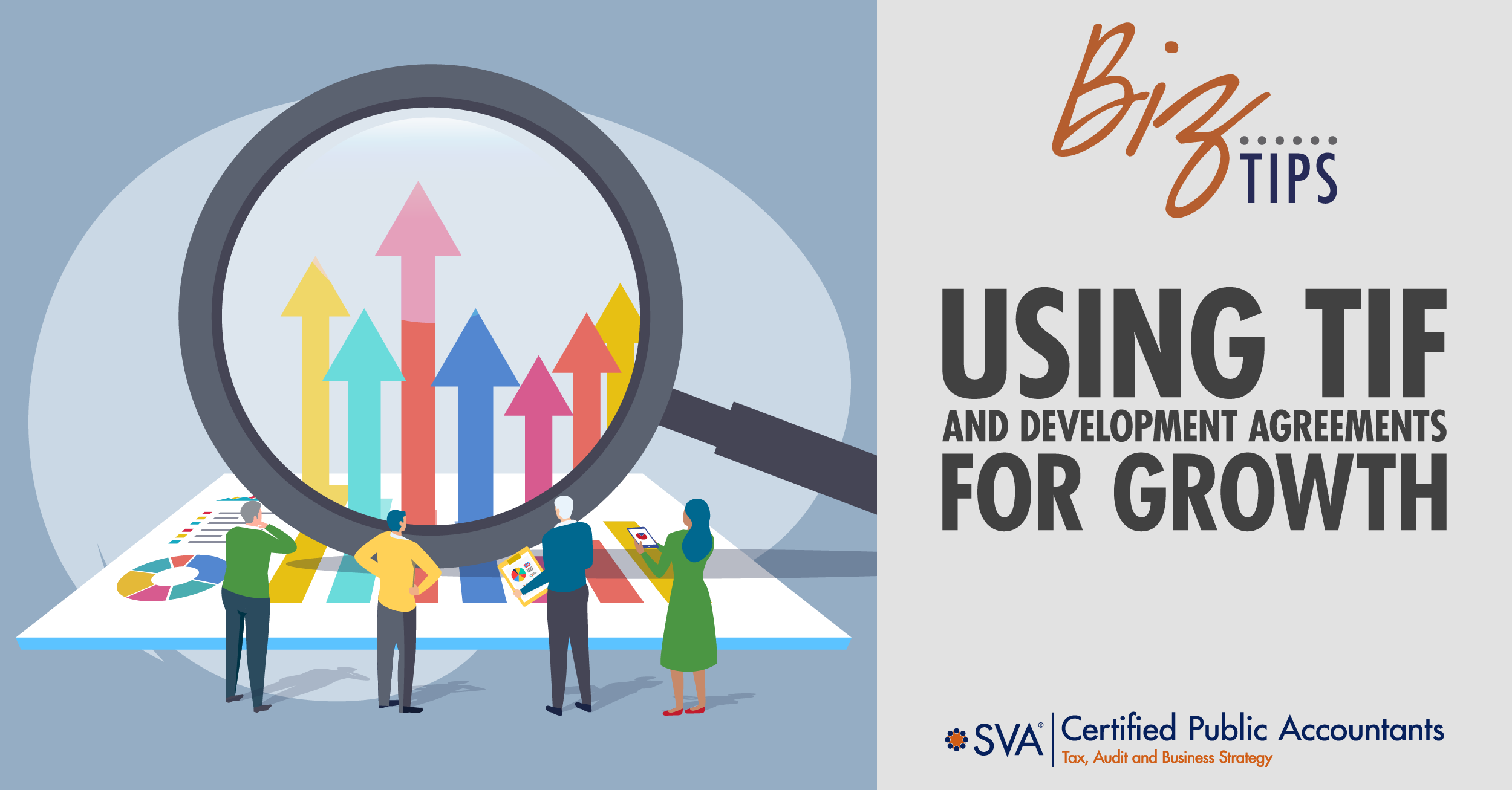| Highlights: |
- Tax Increment Financing (TIF) is a public funding tool that captures future property tax gains to help finance business expansions and infrastructure improvements.
- The article explains how hospitality businesses can use TIF for off-season renovations, new amenities, and year-round traffic growth.
- Development agreements with local governments can provide incentives, streamline permitting, and align projects with economic development goals.
|
Driving growth in your hospitality business can be a challenge, but the right financial tools and strategies can make it a bit easier.
One effective strategy is to leverage Tax Increment Financing (TIF) and development agreements to fund and support projects that can boost your business during the peak season by providing capacity and during your offseason by leveraging the financing to develop attractions that drive business.
What is Tax Increment Financing (TIF)?
Tax Increment Financing (TIF) is a public financing method used to subsidize redevelopment, infrastructure, and other community improvement projects. TIF works by diverting future property tax revenue increases from a defined area or district toward current improvements that are expected to generate those increased revenues.
For hospitality businesses, TIF can be a powerful tool to fund renovations, expansions, or other projects that can attract more visitors.
How Can Hospitality Businesses Leverage TIF?
1. Fund Off-Season Renovations and Upgrades
Use TIF to finance renovations or upgrades to your property that can be completed during the off-season. This not only enhances your facility for peak-season guests but also helps attract more off-season visitors by offering a fresh, updated experience.
2. Develop New Amenities to Drive Year-Round Traffic
- Invest in new amenities such as conference centers, wellness facilities, or event spaces using TIF. These additions can create new revenue streams during the off-season by attracting corporate events, retreats, families attending sporting activities and other gatherings that are less dependent on seasonal tourism.
- Adding attractions can also draw customers to visit your property. A spa, escape room, or illusion museum are just some attractions that can add value year-round.
What are Development Agreements?
Development agreements are legally binding contracts between a developer (in this case, your business) and a government entity, typically a city or municipality. These agreements can include terms for financial incentives, zoning changes, infrastructure improvements, and other support that can help make a project financially viable. For hospitality businesses, development agreements can be customized to support projects that drive growth.
It's important to understand the nuances of TIF and development agreements, as these nuances determine the taxability of the agreements. Depending on the way it’s written, you may be able to reduce the basis of an asset. If written another way, the funds are taxable income in the year they are received. In some cases, the receiver of the funds can influence the agreement based on their desired outcome.
How Can Hospitality Businesses Benefit from Development Agreements?
1. Secure Financial Incentives
Through development agreements, you may be able to negotiate financial incentives such as grants, low-interest loans, or tax abatements. These incentives can reduce the cost of off-season projects, making it easier to fund growth initiatives.
2. Streamline Zoning and Permitting
Development agreements can also help expedite zoning changes or streamline the permitting process for new projects. This can be particularly valuable if you’re looking to expand or develop new amenities quickly to capitalize on off-season opportunities.
3. Partner with Local Governments
Collaborate with local governments to align your business goals with community development plans. By demonstrating how your project will benefit the local economy, you may be able to secure additional support and resources that can enhance your off-season growth strategy.
A Focus on Growth
Investing in your business can create a competitive advantage that pays dividends year-round. By leveraging TIF and development agreements, you can finance and execute projects that attract more visitors, increase revenue, and position your business for long-term success.
© 2024 SVA Certified Public Accountants

